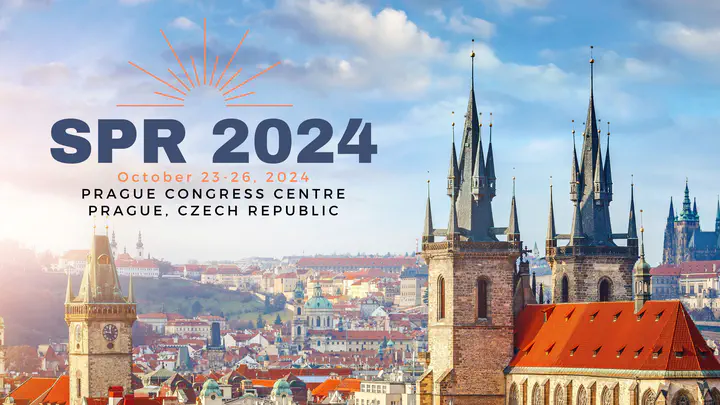Interacting Emotional and Cognitive Processes - SPR Annual Meeting 2024
 SPR 2024 Prague
SPR 2024 PragueAbstract
Previous research has examined cognitive and affective processes separately, neglecting their potential interaction. Several recent studies have demonstrated the effects of working memory (WM) load on emotional face processing. However, simultaneous and sequential effects of different emotional expressions and load levels are still not fully understood. We conducted a MEG study (N=38) with a dual task alternating between facial emotion discrimination (happy, angry, neutral) and spatial n-back (1-, 2-back). We hypothesized that high load would reduce valence effects during face processing and angry faces would disrupt WM processes by occupying shared cognitive resources. We observed significant main effects of load and valence, but no interaction. Spatiotemporal clusters starting 190 ms after face onset revealed that angry faces elicited increased activation in prefrontal areas, the insula, the anterior cingulate cortex, and face-specific occipital regions during emotion discrimination. Insula activation was further correlated with later occipital reactivation, suggesting enhanced processing and salience for angry faces. Prefrontal control mechanisms were observed 400 ms after face onset, but only for angry compared to happy faces. During high load in the n-back task, alpha and beta power was reduced in parieto- and temporo-occipital brain regions and cingulate cortex, suggesting reduced WM processes but also reduced inhibition of distractors. Our findings revealed differences in processing modes but also available resources, when discriminating angry faces.